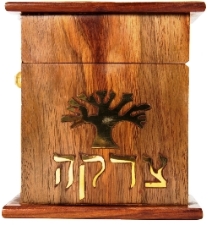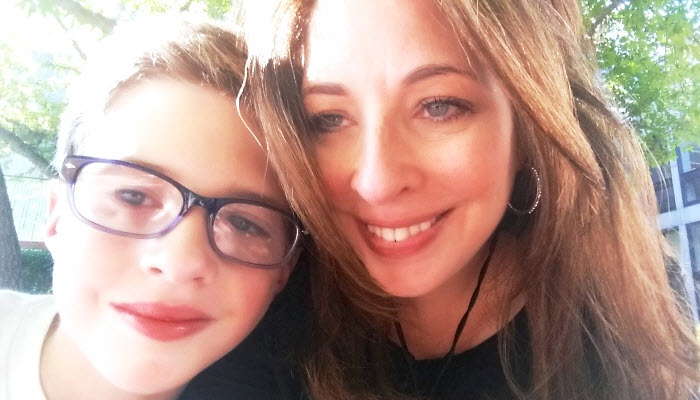Celebrating Modern Jewish Living Through Food, Tradition, and Family
A Tzedakah Tale
It’s 9:00 a.m. on a cold Sunday morning. Thanksgiving is a but a few weeks away, Christmas catalogs have been filling up my mailbox for weeks now (already?) and just about everything in my inbox these days is about gratitude, giving thanks, and sharing joy at the holidays. At least the subject lines are…and then the email or sales pitch or press release invariably lead to some sort of promotion to buy something, download something, sample something, do something that costs money to show just how grateful or appreciative I am for the blessings in my life.
Seems kind of a mixed message, don’t you think?
And then this morning, my seven-and-a-half-year-old-son managed to simplify the meaning of giving in a single, selfless act.
Two Sundays a month, my kids go to Hebrew school at our local synagogue. They spend two hours learning songs, stories, culture, and history, but most of all, are taught what most religious education programs teach: the values of caring, love, kindness, and community. One of the principles that Judaism is built upon is called Tzedakah, a Hebrew word that translates to justice, but in practice means a truly deep obligation to give to others. Not charity, per se, but giving as a moral, compassionate and lifelong commitment to caring for others in the community.
During one school session, the kids made Tzedakah boxes and decorated them and now have them in their bedrooms. To tell you the truth, I had forgotten about them because we have a Tzedakah box on our kitchen counter that we regularly contribute to and at the end of the year, my three kids like to spill out the contents, count up all the change and bills and then we present it to our rabbi with a note. They are so proud of their yearly savings, that this collection has always been the Tzedakah focus in our house.
That said, I was completely surprised this morning, when my son did the following:
As the kids were getting ready to leave, I gave each of them a dollar, as I do every week so that they can make a contribution to their class Tzedakah box. Morgan took his dollar, said, “Thank you very much” and then added the following as he raced up the stairs to his room, “I’m going to get the rest of my Tzedakah money and bring it all to school today. Can you get me a baggie?”
I had no idea what he was talking about. And then I remembered the little Tzedakah box each of the kids had made at Hebrew school and it dawned on me: he had been saving money in it all along.
Now I have to tell you: my son is probably a lot like yours, if you’ve got a little boy about to turn eight. He can be sweet as pie one minute and completely stubborn and impossible the next. But this child has always had an incredibly generous spirit. When he was about three years old, I would have to catch him by the seat of his pants, because every time he would hear our weekly garbage and recycling guys pull up in their trucks, he’s start to race out the door to bring juice boxes and fruit snacks. They’d melt when they’d see him teetering out with his drunken toddler waddle, diaper sticking out of his pants. They’d take the snacks, honk their horn a bunch of times to say thanks, and Morgan would jump up and down at the sound of the horn, completely thrilled, as if the circus has just come to town on his front yard. Best. Thing. Ever.
And then this: there’s a local lunch place that I take him to sometimes—your neighborhood burger and lunch kind of place. Even as a little boy—he couldn’t have been more than three or four—when he would finish his meal (halfway through, like most kids), he would ask if he could give the rest of it to another little boy who might be hungry and not have any food. He just did this. I don’t know where it came from; he’s just always been this way.
So, it should have come as no surprise that he raced back down the stairs, breathless and excited and with his homemade Tzedakah box in hand. He dumped the contents out on the kitchen counter and wasted no time. He counted seven dollar bills and five dollars and ninety cents in change. I gave him a dime to make it an even 13 dollars and he put it all in a plastic baggie. We wrote $13 on a piece of paper and tucked the note into the baggie. Then he matter-of-factly put it into his backpack and said “Do you think my teacher will be excited that I saved all this myself?”
“Very proud,” I said, holding back a tear. “Very, very proud.”
“Do you think it will go to a kid?” he asked.
“I’m sure of it, Morgan,” I said. “Let’s go.”
Until Next Time,
Jodi





 Subscribe to
Subscribe to